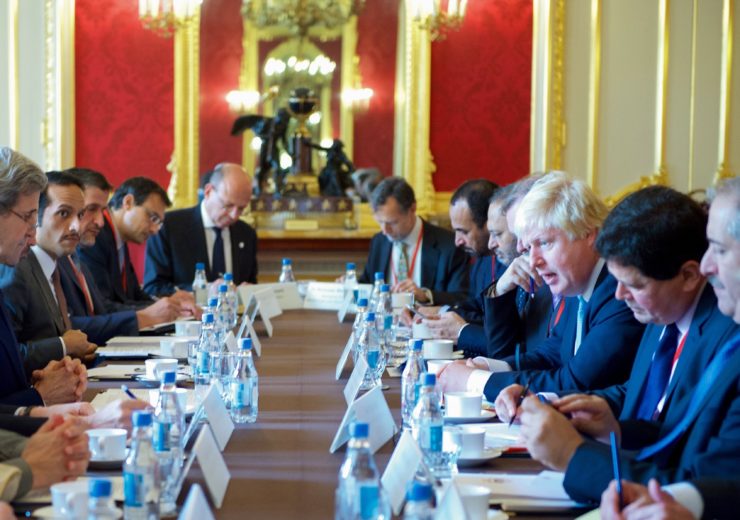Health secretary Matt Hancock says everyone in the UK will have a part to play in tackling the coronavirus — including the public, the NHS and the government

The government will hold more COBR meeting over the coming weeks if the coronavirus outbreak in the UK worsens (Credit: US state department/Flickr)
A “war room” of experts will be set up to create a coronavirus “battle plan” over the coming weeks, says UK health secretary Matt Hancock.
The team, made up of scientists and communication experts, will hold regular Cobra meetings to roll-out a public information campaign and respond to the progression of the coronavirus.
Every government department will have a designated leader to help oversee the UK’s response to the threat of coronavirus.
Hancock is preparing an updated action plan, alongside authorities in Scotland, Wales and Northern Ireland, on how the public and the NHS can deal with the outbreak.
The document is expected to be published later this week, and will outline steps to manage coronavirus if there is a sustained epidemic in the UK.
Prime Minister Boris Johnson will also chair a Cobra meeting today (2 March) as part of the health secretary’s refreshed public information campaign.
The UK is currently in a “containment phase”, where isolated cases are transferred to hospital and assessed in detail to find how the virus was contracted.
But further progression of the disease into an epidemic may see broader measures introduced to keep the public safe and relieve the pressure on the NHS.
This could include looking at emergency registration of health professionals who have retired, relaxation of rules around staff-to-pupil ratios in education and childcare settings, and encouraging more employees to work from home and avoid unnecessary travel.
Hancock said: “The UK is a world leader in preparing for and managing disease outbreaks, and I have every confidence in our nation’s ability to respond to the threat of Covid-19.
“Public safety is our top priority. Our battle plan will ensure that, as this escalates, every part of government is working together to share the responsibility of tackling the health, economic, and social impacts of Covid-19.
“The government and the NHS are working 24/7 to fight this virus, but cannot do this alone.
“Every single person has a role to play in helping to manage the spread of the virus — whether that’s washing your hands more often, catching your sneezes, or following clinical advice by calling NHS 111 and not going to A&E if you develop symptoms.”
Timeline of coronavirus in the UK
On 2 March, health officials confirmed 13 new cases of coronavirus, bringing the total number of infections in the UK to 36.
One of these new cases — a man with previous travel history to Italy, where more than 1,500 cases have been confirmed — is also the first infected person in Scotland.
The first two cases of coronavirus in the UK were reported by NHS England chief medical officer Professor Chris Whitty on 31 January — the same day the WHO (World Health Organisation) declared the outbreak a global public health emergency.
The third and fourth UK cases were confirmed on 6 and 9 February respectively, leading the UK government to call the situation a “serious and imminent threat to public health”.
On 10 February four more people were diagnosed in the UK, doubling the number of confirmed cases.

On 23 February the UK
On 27 February this number rose to 16 due to two new cases in England and the first case in Northern Ireland.
The following day, four more cases in the UK, including the first case in Wales, brought the total number of infections to 20. An elderly man who was aboard the Diamond Princess also became the first UK national to die from coronavirus.
On 1 March, the UK confirmed a further 13 cases — all of which were in England — almost doubling the number in the region aga.
